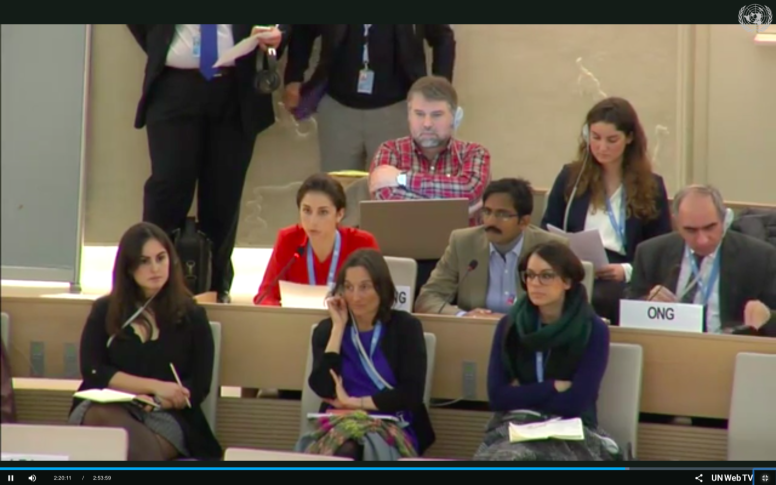
Oral statement delivered under Item 3: Clustered Interactive Dialogue with the Special Rapporteur on the Right to Privacy and the Special Rapporteur on the Sale of Children, UN Human Rights Council 37th Session, 6 March 2018
Thank you Mr. President.
The Association for Progressive Communications welcomes the opportunity to engage in this dialogue with the Special Rapporteur on the right to privacy.
We commend his report's gendered approach to privacy and surveillance and the recognition that violations to privacy form part of online gender-based violence. We reiterate our view that existing international human rights law provides a clear and universal framework for the promotion and protection of the right to privacy in the digital age, but that there are gaps in its application. Gender-based attacks on privacy are one such example.
Online attacks, such as doxxing, the unauthorised accessing and use of personal data, the non-consensual dissemination of intimate images, and other forms of online gender-based violence, constitute violations of the right to privacy. They also have a chilling effect on freedom of expression and association and infringe on women’s rights to self-determination and bodily integrity. These measures impact on women’s capacity to move freely, without fear of surveillance.
This is particularly acute for communities already at risk of violent attacks and even murder, such as women human rights defenders and women journalists. Lesbians, bisexuals and transgender people, sex workers, survivors of domestic violence and others who use the internet to advance the rights of marginalised women also experience particular risk. The ability to use the internet anonymously is critical for them to be able to exercise freedom of expression without being hampered by undue state and/or social surveillance.
In this regard, we welcome the report's recognition of the differential vulnerability across communities and urge the development of responses that are rooted in international human rights law and consider multiple rights including the right to safety, to movement, to participate in public life, to freedom of expression and to privacy, among others.
We encourage the Special Rapporteur to work with other Special Procedures who are addressing this issue to ensure that the right to privacy is adequately addressed.
Thank you Mr. President.